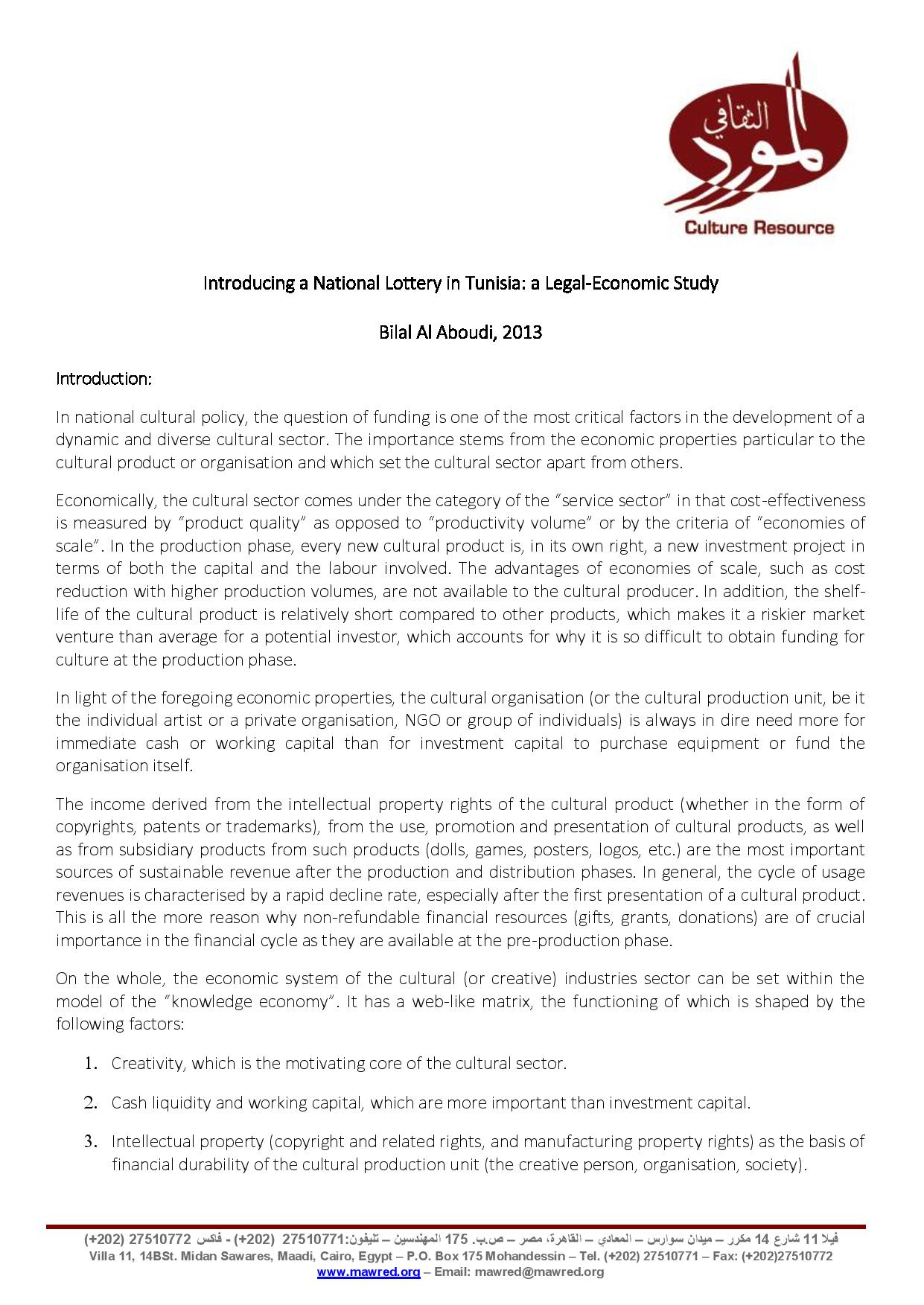
In national cultural policy, the question of funding is one of the most critical factors in the development of a dynamic and diverse cultural sector. The importance stems from the economic properties particular to the cultural product or organisation and which set the cultural sector apart from others.
Economically, the cultural sector comes under the category of the “service sector” in that cost-effectiveness is measured by “product quality” as opposed to “productivity volume” or by the criteria of “economies of scale”. In the production phase, every new cultural product is, in its own right, a new investment project in terms of both the capital and the labour involved. The advantages of economies of scale, such as cost reduction with higher production volumes, are not available to the cultural producer. In addition, the shelf-life of the cultural product is relatively short compared to other products, which makes it a riskier market venture than average for a potential investor, which accounts for why it is so difficult to obtain funding for culture at the production phase.